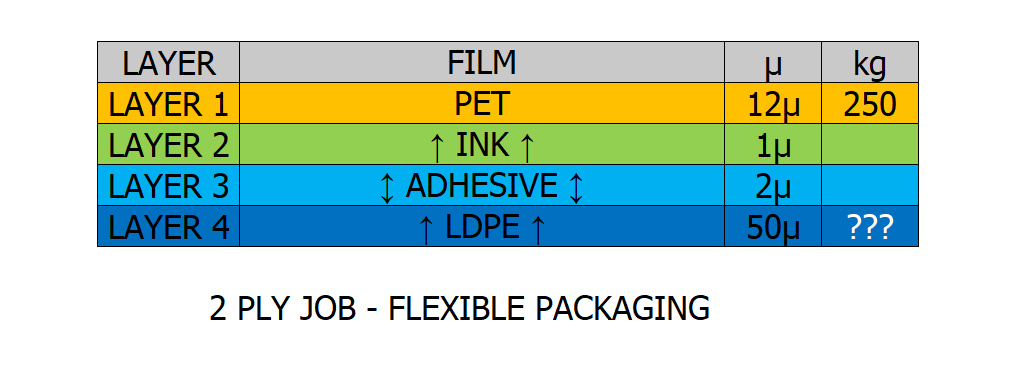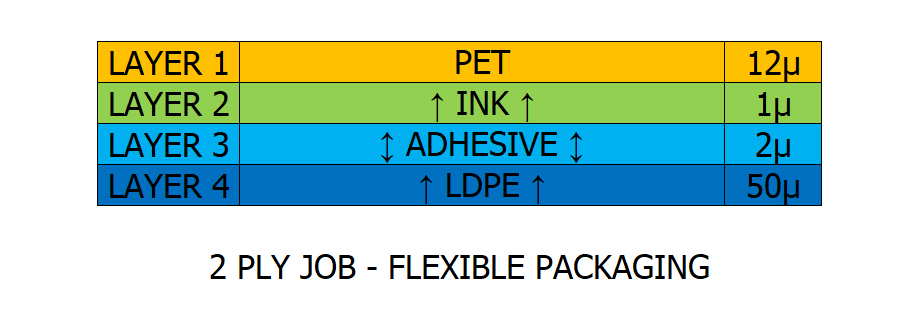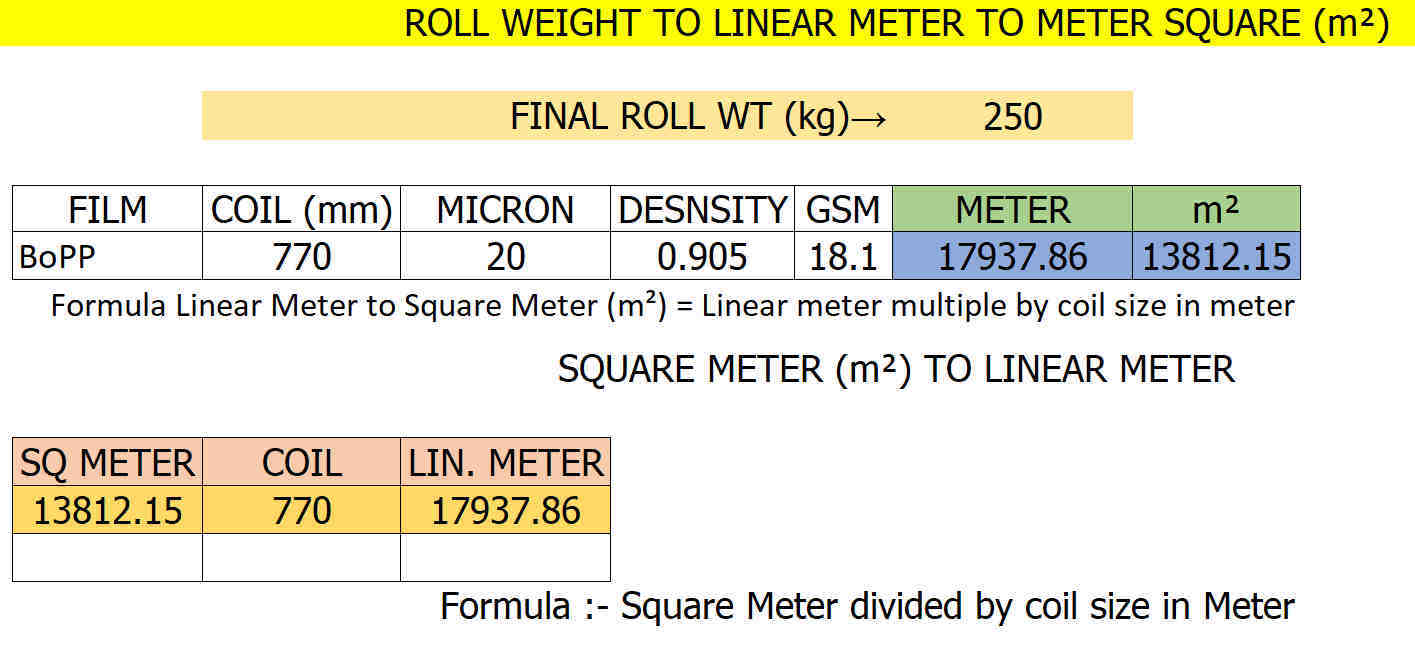1st Layer – 12µ Pet Density 1.4
2nd Layer – 50µ LDPE/Poly (Natural) Density 0.93
How much 2nd Layer required for 250 kg Pet ?
2nd Layer gsm x printed Quantity ÷ 1st Layer gsm
(50 * 0.93 * 250) ÷ (12 * 1.4) = 691.96 kg
1st Layer Pet 12µ – 250 kg
2nd Layer Poly 50µ – 691.96




